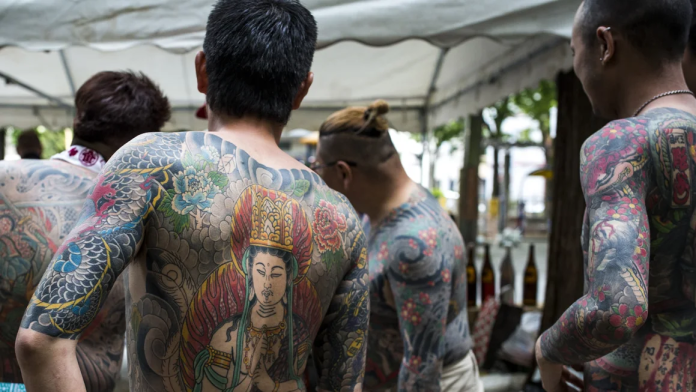In a twist highlighting Japan’s stringent anti-gang laws, four men aged 55 to 77 were arrested in Tokyo last week for running a yakuza office within 200 metres of a library, according to Japanese media.
The suspects, linked to the Sumiyoshi-kai syndicate, allegedly operated the site from June 2024 to February 2025 in violation of municipal regulations restricting organised crime groups from establishing bases near schools, courts, and cultural institutions.
Tokyo’s ordinances prohibit yakuza offices within 200 metres of sensitive locations, including libraries, as part of a decades-long campaign to erode their influence. The arrested individuals, one of whom is a 77-year-old Sumiyoshi-kai affiliate, face charges of “conspiring” to breach these rules.
Police stated the group “continued activities despite knowing the area was restricted,” underscoring authorities’ zero-tolerance approach to even non-violent infringements.
Once boasting over 184,000 members during their 1960s heyday, yakuza syndicates have dwindled to a record low of 18,800 in 2024, according to the National Police Agency (NPA). Legal reforms since the 2010s have criminalised recruiting members, paying kickbacks, or profiting from gang ties, while everyday hurdles—like securing mobile contracts or renting apartments—have pushed many toward disbandment or legitimate businesses.
Far from their cinematic portrayal, modern yakuza groups like the Sumiyoshi-kai maintain registered offices—their Akasaka headquarters lies near Japan’s parliament—but operate under intense scrutiny. Businesses are barred from hiring yakuza as security or entering contracts that “encourage” their activities.
This regulatory vise has forced even the largest syndicates to adapt: in April, the Yamaguchi-gumi vowed to end a bloody feud with a rival faction, handing police a letter pledging to “end all internal fighting” and “never cause trouble.”
The recent arrests reflect a broader trend of yakuza avoiding overt criminality to survive. For Tokyo’s ageing gangsters, even a library’s proximity has become a step too far in Japan’s unrelenting war on organised crime.
